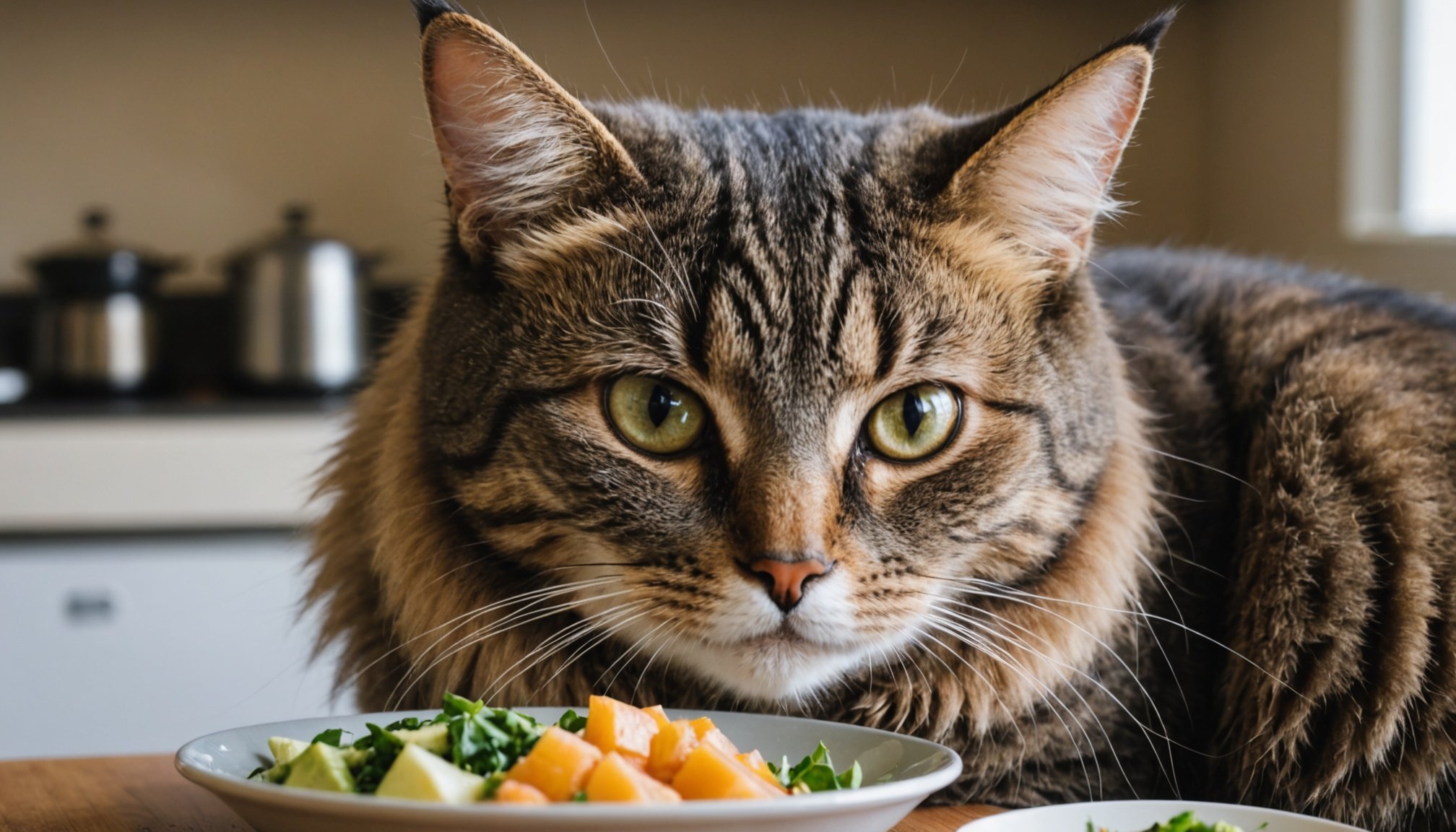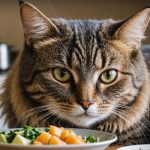Overview of Hyperthyroidism in Cats
Hyperthyroidism in cats is a common endocrine disorder that significantly affects feline health. This condition involves an overproduction of thyroid hormones, leading to a metabolism that runs at an excessively high speed. As a result, it impacts various bodily functions and can cause multiple health issues if left untreated.
The symptoms of hyperthyroidism in cats are varied but often include weight loss despite an increased appetite, hyperactivity, and possible behavioural changes like excessive vocalization. Other indicators can be increased thirst and urination, vomiting, and a poor coat condition. If these signs are observed, it is crucial to seek veterinary assistance to establish a proper diagnosis.
Also to read : Ultimate guide to choosing the ideal exercise wheel for your gerbil”s fitness needs
The diagnostic process for hyperthyroidism involves a thorough physical examination by a veterinarian. Blood tests are typically performed to measure levels of thyroid hormones, primarily thyroxine (T4). Elevated T4 levels usually confirm the condition. In some cases, additional tests like imaging or thyroid scintigraphy might be conducted to further assess the thyroid glands’ activity and size. Understanding these processes helps in ensuring timely and accurate diagnosis, enabling effective management of hyperthyroidism in cats.
Nutritional Requirements for Cats with Hyperthyroidism
When addressing nutritional requirements for hyperthyroid cats, it is crucial to focus on a well-balanced diet tailored to their unique needs. Caloric intake requires careful adjustment, as hyperthyroid cats often experience weight loss despite increased hunger. Ensuring adequate calories to counteract this metabolic acceleration is essential.
In the same genre : Crafting the ultimate haven: how to design a safe and enriching space for your african grey parrot
Another key factor is protein levels. Cats with hyperthyroidism benefit from high-quality protein to maintain lean muscle mass and fuel their energy needs. Opt for proteins rich in amino acids, which are vital for overall bodily function. Incorporating proteins from diverse animal sources can help ensure a balanced amino acid profile.
Fats are also an important dietary component. Including healthy fats supports skin and coat health, and provides a dense energy source. Omega-3 fatty acids are particularly beneficial in reducing inflammation and promoting immune health.
Monitoring and adjusting the diet regularly based on veterinary recommendations ensures the nutritional requirements are met effectively. Veterinary guidance is crucial in determining the appropriate dietary regimen for hyperthyroid cats. Consistent evaluations and adjustments are vital to provide optimal support for maintaining health during treatment.
Selecting or Preparing a Balanced Diet
Exploring ways to provide a balanced diet for cats with hyperthyroidism is crucial to support their health and well-being. Pet owners often face a choice between commercial diets and homemade cat food options.
Choosing Between Commercial and Homemade Diets
Commercial diets, specially formulated for hyperthyroid cats, offer convenience and assurance of completeness. These diets often contain balanced nutrients and adhere to veterinary science recommendations. On the other hand, homemade diets allow pet owners to control ingredients and adapt meals to specific feline preferences and needs. However, ensuring these homemade meals meet the necessary nutritional requirements can be challenging without proper guidance.
Tips for Ensuring Nutritional Balance
To maintain a nutritionally complete diet, whether commercial or homemade, it is important to include key components such as adequate protein, fats, and vitamins. Consulting with a veterinarian to tailor these elements, particularly when creating a homemade diet, is essential.
Common Mistakes to Avoid
Avoid common pitfalls like improper portion sizes or omission of vital nutrients. It is crucial to ensure the diet includes essential amino acids and fatty acids. Owners should be cautious of human foods that are toxic to cats, such as onions and garlic.
Recommended Foods for Hyperthyroid Cats
Selecting the appropriate cat food is crucial for managing hyperthyroidism effectively. Both wet food and dry food have options that cater to the unique needs of hyperthyroid cats. Commercial wet foods often have higher moisture content, helping maintain hydration, which is beneficial given that hyperthyroid cats can become dehydrated quickly. Wet foods also tend to have a higher protein content, crucial for maintaining muscle mass.
On the other hand, dry food offers the convenience of longer shelf life and easy portion control, which is particularly useful for free-feeding methods. However, it’s essential to ensure the dry food selected is specifically designed for hyperthyroid cats, as not all formulas will provide the required nutritional balance.
When choosing cat food, look for ingredients rich in high-quality proteins and omega-3 fatty acids. Avoid products with excessive carbohydrates or artificial additives, which can exacerbate symptoms. Lean meats such as chicken or fish are often recommended ingredients.
Consulting with a veterinarian allows pet owners to understand the specific dietary adjustments needed for their feline friends. Vet guidance helps in navigating the nuances of food selection, ensuring optimal support through proper nutrition.
Potential Supplements to Consider
When dealing with hyperthyroidism in cats, considering dietary supplements can support overall well-being. Supplements can provide additional vitamins and minerals that may be beneficial for health maintenance. Cats with hyperthyroidism often face increased metabolism, which sometimes results in nutrient deficiencies despite careful dietary management.
Specific vitamins, like B vitamins, play a crucial role in supporting energy production and nerve health. Vitamin E, an antioxidant, supports cell protection and immune function. Additionally, omega-3 and omega-6 fatty acids, although often present in cat food, can be supplemented to further support coat health and reduce inflammation.
When incorporating supplements, consultation with a veterinarian is essential. Consultations help tailor supplement choices to meet individual feline needs effectively, avoiding over-supplementation which can be detrimental.
For a solid supplementation plan:
- Consult with a vet before introducing new supplements
- Consider targeted supplements addressing specific deficiencies
- Monitor the cat’s response to the chosen supplements
These steps ensure that you are supporting your cat’s health effectively while avoiding unnecessary or harmful dosing. Maintaining communication with your veterinary professional will provide the most secure pathway to integrating supplements into your cat’s diet.
Addressing Misconceptions about Feeding Hyperthyroid Cats
Navigating the world of hyperthyroid cat care can be filled with misleading information. It’s crucial to distinguish common misconceptions from facts to ensure optimal health for our feline companions.
Clarifying Feeding Myths
One myth is that hyperthyroid cats should only consume specific, restricted diets. While it’s vital to focus on certain nutritional needs, believing that only one type of food will suffice is inaccurate. Cats require a diet that maintains a balance between protein, fats, and carbohydrates. These components are crucial in meeting their elevated energy demands, not just narrowly defined “special” cat diet plans.
Misunderstandings about Dietary Restrictions
Another misunderstanding is avoiding all fat in a hyperthyroid cat’s diet, fearing weight gain. In reality, healthy fats, like those containing omega-3 and omega-6 fatty acids, are important. These support coat, skin health, and provide necessary energy, countering the high metabolism seen in these cats.
Educating Pet Owners
Informing pet owners is key to dispelling myths. Clearer comprehension of the importance of balanced diets aids in making informed decisions about feeding practices rather than adhering to misguided restrictions. By eliminating these misconceptions, cat owners can better care for their hyperthyroid pets, ensuring a healthier and happier life.
Recognizing Signs of Dietary Deficiencies
Identifying dietary deficiencies in hyperthyroid cats is crucial for maintaining their health. Cats with hyperthyroidism often have increased metabolic demands, making them more susceptible to deficiencies. Monitoring for certain symptoms can aid in early detection and intervention.
Common Indicators of Deficiencies
- Weight loss despite normal or increased appetite
- Poor coat condition: dull or patchy fur
- Lethargy or decreased energy
- Persistent vomiting or diarrhea
These signs suggest nutritional imbalances or deficiencies. Weight loss is a key indicator of insufficient caloric intake, while a poor coat may indicate low levels of essential fatty acids or vitamins.
Importance of Health Monitoring
Regular health monitoring of hyperthyroid cats enables early identification of deficiencies. Implement bi-annual veterinary check-ups, where a vet can evaluate your cat’s overall health and dietary needs. Blood tests can be conducted to check for low nutrients, such as taurine or vitamin B.
Responding to Deficiencies
If deficiencies are suspected, prompt adjustment of the diet is necessary. Consult a veterinarian to refine the nutritional requirements tailored to your cat’s needs. By addressing potential deficiencies early, you can ensure your feline friend maintains a balanced diet and sustains good health.
Actionable Steps for Pet Owners
Providing the best care for a hyperthyroid cat involves clear and structured actionable steps. Ensuring a feeding guide is in place helps maintain their health and energy levels optimally.
Creating a Feeding Schedule
Establishing a consistent feeding schedule is crucial. This helps regulate caloric intake and ensures the cat receives the necessary nutrients throughout the day. Plan mealtimes around the cat’s energy levels and appetite, often feeding smaller portions numerous times daily. This approach counteracts rapid metabolism by providing consistent energy sources.
Regular Vet Visits
Frequent vet check-ups play a critical role in managing hyperthyroidism. Regular visits allow for monitoring of thyroid hormone levels, adjusting medication if necessary, and tailoring dietary recommendations. Veterinary advice ensures the cat’s diet evolves with their health needs and any emerging conditions are promptly addressed.
Adjusting Diet Based on Health Changes
Remain vigilant about health changes in your cat and adapt their diet accordingly. Symptoms such as weight fluctuations or changes in appetite may signal a need to recalibrate their nutritional plan. Consult with your veterinarian to make informed dietary adjustments, ensuring your cat’s dietary requirements keep pace with their health journey, promoting overall well-being.











